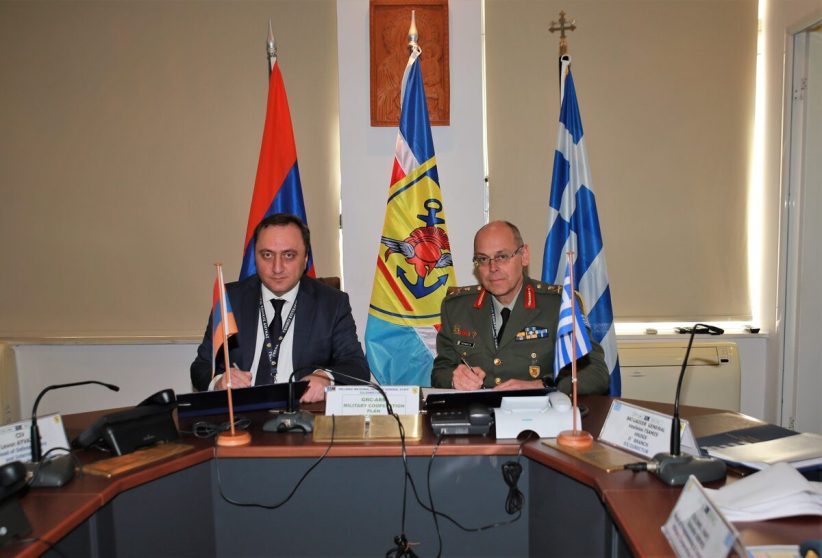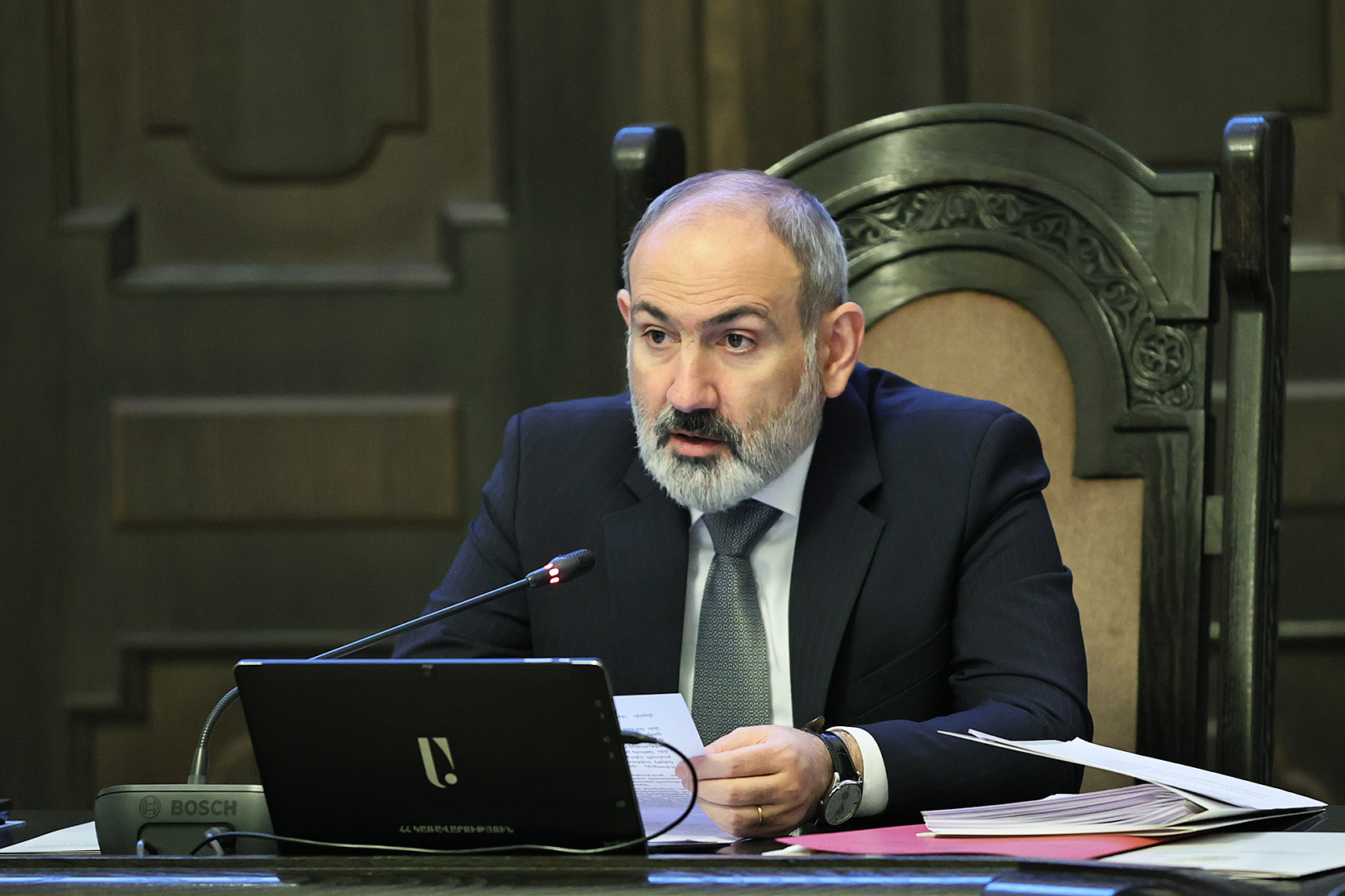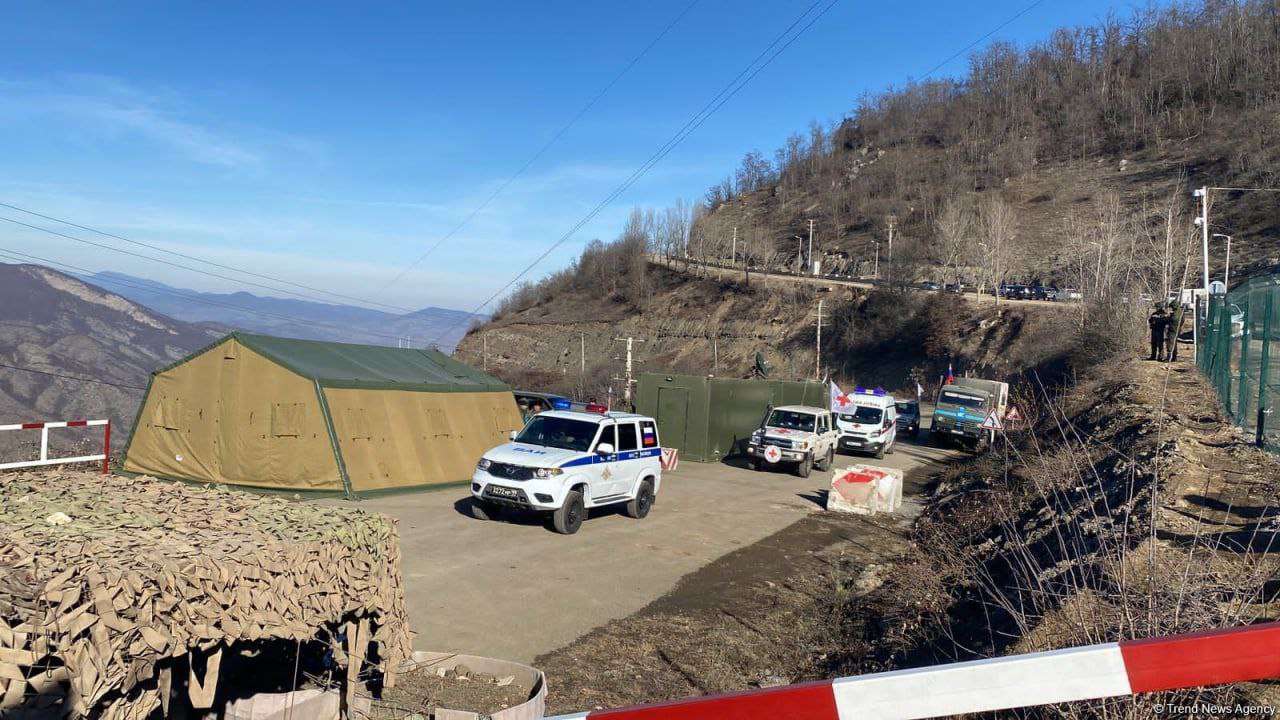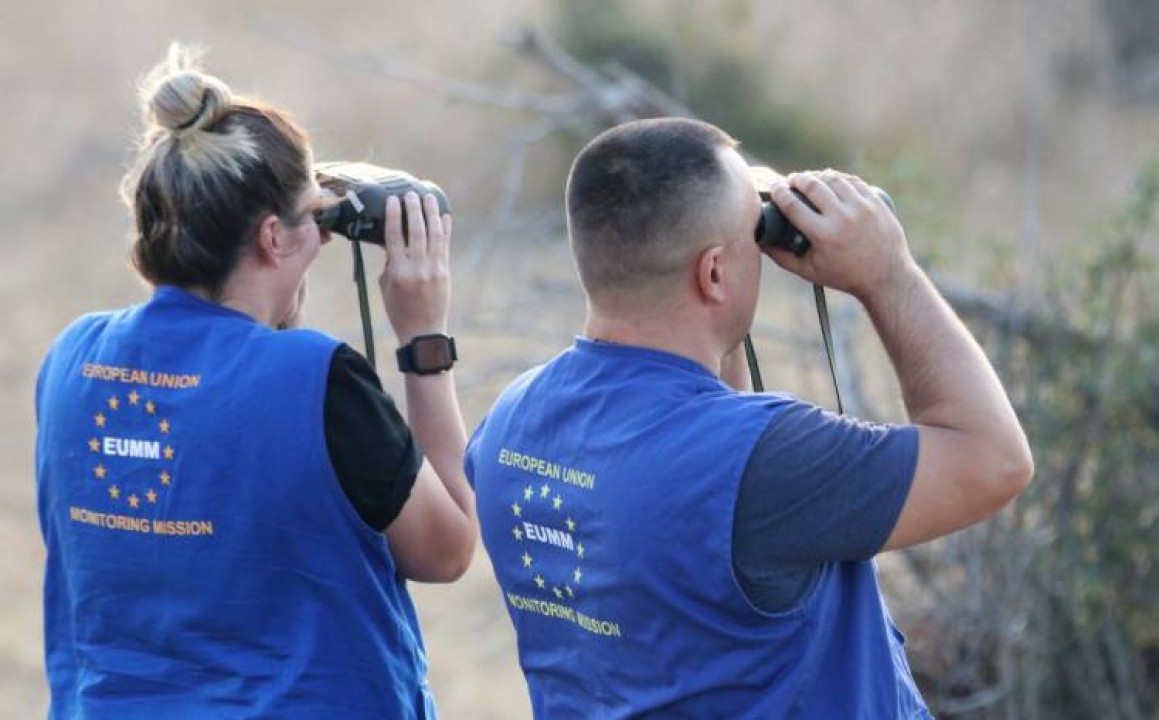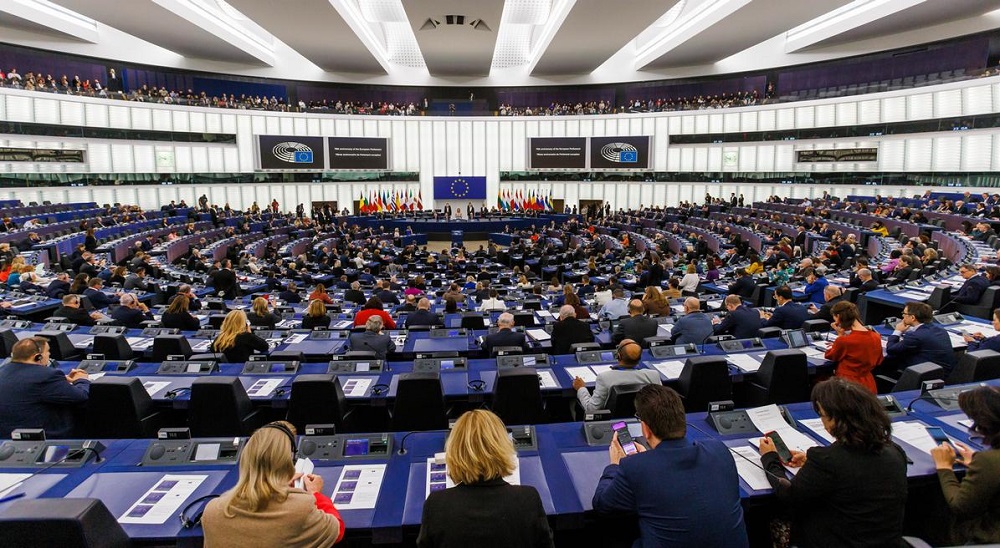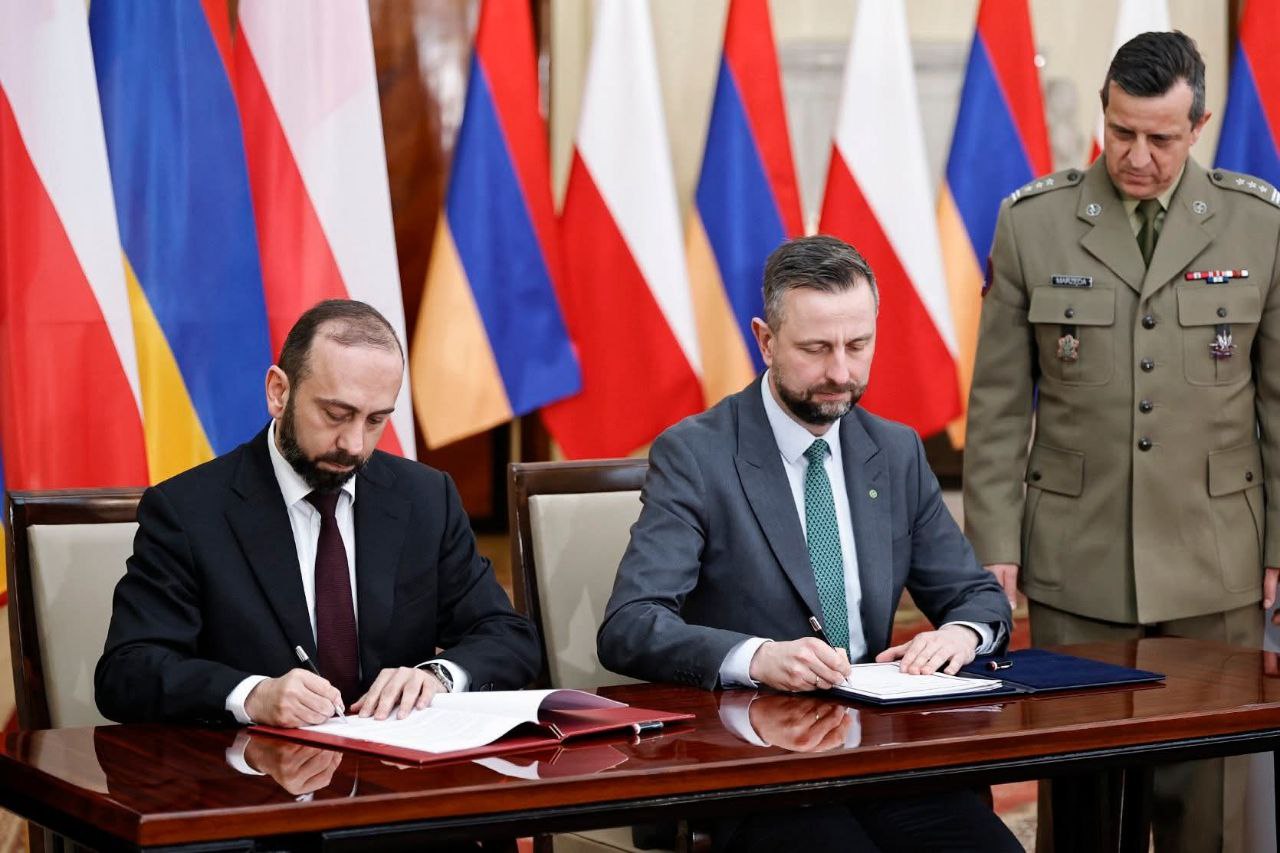"Positional fighting will escalate into large-scale aggression." Opinion from Yerevan
Military clash near the village of Tegh
The Armenian Ministry of Defense reported that on April 11, near the village of Tegh in the Syunik region, the Azerbaijani military opened fire on Armenian soldiers who were carrying out engineering work in the area. Four men were killed and six wounded.
At the end of March, the armed forces of Azerbaijan improved their positions in the same territory. According to a statement by the Armenian authorities, the Azerbaijani armed forces advanced 100-300 meters deep into the sovereign territory of Armenia. On April 11, the Azerbaijani military opened fire on Armenian soldiers from these new, improved positions.
“A group of soldiers of the armed forces of Azerbaijan, under the pretext of clarifying the border points, approached the soldiers of the armed forces of the Republic of Armenia, provoked and opened fire from firearms, and then other weapons of various calibers in the direction of the Armenian soldiers and the positions of the Armed Forces,” the Armenian Foreign Ministry said in a statement.
Political scientist Gurgen Simonyan says that “clarification is usually done with binoculars, maps, pencils and paper, not shooting.” He considers what happened to be military aggression and believes that at some point positional battles could develop into a full-scale war.
“It would be more correct to say that they cannot outgrow, but they will definitely outgrow. But we cannot predict exactly when this will happen. It could happen today, it could happen in five years, but it will definitely happen,” he stressed.
“Armenia has no positional losses”
According to the updated data of the Armenian Defense Ministry, published in the morning, there were no positional losses during the April 11 incident. No significant violations of the ceasefire regime were recorded at night, the situation on the line of contact continues to remain relatively stable.
As for the six soldiers who were injured, three are stable, while the other three are under care.
The Ministry of Defense also released a video showing Azerbaijani soldiers approaching Armenian soldiers performing engineering work on a vehicle, then opening fire.
The agency also denied information spread by the Azerbaijani media that Armenia allegedly used Iranian drones: “There are no Iranian UAVs in service with the Armenian Armed Forces.”
According to the Ministry of Defense, the incident on April 11 occurred at 16:00. At about 17:30, units of the Azerbaijani Armed Forces used mortars in the direction of the village of Tegh. As of 19:00, the intensity of the exchange of fire had significantly decreased. Almost an hour later, a report was received that the situation had “relatively stabilized.”
“Azerbaijanis demand engineering work be halted”
Armen Khachatryan, Deputy Head of the Parliamentary Commission for Defense and Security, told reporters that on the pretext of negotiations, a car with Azerbaijanis drove up to Armenian positions from the territory controlled by them:
“The Azerbaijanis demanded that the Armenian soldiers stop the engineering work. Ours gave a worthy answer, and after the answer, hostilities began. The army brilliantly fulfilled the tasks assigned to it, our soldiers yesterday gave a worthy answer to the audacious trick of Azerbaijan.”
According to the deputy, there was no mediation on the issue of cessation of hostilities:
“The situation was resolved in the process of communication between the relevant representatives of the power structures of Armenia and Azerbaijan. The question was put like this: do we continue to shoot, will we let the situation escalate into a war, or will we stop shooting? I am sure that the fact that our army firmly stood on its positions and struck back played a big role in the cessation of hostilities.”
Khachatryan also said that the Armenian military is carrying out serious engineering work on this site, this is what “the Azerbaijanis do not like, and they are trying in every possible way to disrupt them.”
“Another encroachment by Azerbaijan on the territorial integrity of Armenia”
This is how the actions of the Azerbaijani armed forces are characterized in the statement of the Armenian Foreign Ministry. It says that this policy of Baku is not new, it is a continuation of the actions committed against Armenia in May and November 2021, September 2022. The Armenian authorities claim that as a result of these military actions, Azerbaijan has occupied more than 140 sq. km of sovereign territories of the country:
“The use of force and the threat of use of force are an integral part of Azerbaijan’s policy and are aimed at significantly destabilizing the situation in the region and undermining the efforts of mediating partners to continue peace negotiations. We call on the international community and all partners interested in peace and stability in the region to condemn the aggressive actions of Azerbaijan and prevent further escalation of the situation through targeted statements and clear steps.”
“Activate negotiations on the delimitation of the border”
A statement from the EU Foreign Service says that the EU stands ready to support this process:
“We call for restraint and the resolution of all disputes peacefully. The EU continues to support these efforts, including at the highest level, as well as through the presence of the EU monitoring mission in Armenia.”
The statement emphasizes that the parties need to comply with previously reached agreements, in particular the obligations assumed in Prague in October 2022:
“The incident once again emphasizes that in the conditions until the demarcation is carried out, it is necessary to respect the 1991 border, the forces of either side must be withdrawn to a safe distance from this line in order to avoid the recurrence of such incidents.”
A comment
Political scientist Gurgen Simonyan regards the incident in the village of Tegh as military action which “Azerbaijan undertook based on its aggressive policy.”
He notes that the positions from which the Azerbaijanis fired came under the control of Azerbaijan quite recently, due to the negligence of the Armenian side.
“Azerbaijan will not stop, it will go as far as it wants. Armenia should not allow this,” he told JAMnews.
According to Simonyan, Armenia “needs to respond to incidents like the one in the village of Tegh, but in such a way that it is obvious that this is a response to Azerbaijan’s aggression.”
Simonyan believes that “in order to prevent war crimes, Armenia must immediately ratify the Rome Statute“:
“It is in our national interest to ratify the Rome Statute so that Azerbaijan, from the commander-in-chief to the soldier, knows that sooner or later they will be brought to justice. This may be a deterrent. And the question of which country’s leader has an arrest warrant issued by the International Criminal Court [referring to Putin’s arrest in Armenia if the statute is ratified] is a secondary issue.”
Simonyan says that it is not a fact, but possible that the incident was provoked by Russia, which openly states that Armenia’s agreements with the West are undesirable, that the EU monitoring mission “cannot be effective, it can create tension in the region.” The goal, according to him, could be precisely the discrediting of the EU observation mission and to intimidate the military-political leadership of Armenia.
Simonyan also notes that Baku is trying to shift the problem to an “anti-Iranian plane”:
“There is an intention to transfer the issue to an anti-Iranian context in order to obtain the tacit consent of the civilized world, in particular the United States, to conduct certain operations in the Syunik region of Armenia bordering Azerbaijan.”
Simonyan believes that official Yerevan should present facts and evidence to the world, conduct diplomatic work, demonstrate to all partners that “Azerbaijan is fishing in troubled waters.”
Commenting on a possible reaction from the international community, he says that the West does not provide practical assistance, as it does not see a “determination to self-defense” from Armenia. He believes that when this determination is evident, “the share of aid will increase exponentially.”
“The international community can come up with targeted criticism, but this will only create a moral basis for the Armenian Armed Forces to resolve the issue by force. To do this, it is necessary to accelerate the reform in the armed forces,” Simonyan said.
Follow us – Twitter | Facebook | Instagram
Military clash near the village of Tegh










